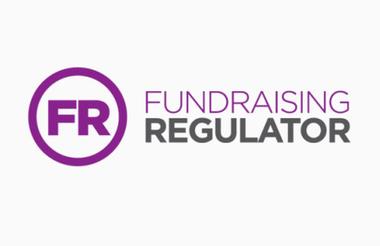The Fundraising Regulator has launched a digital fundraising badge, which allows charities and other organisations to link directly to their entry on the regulator’s directory.
This week, the regulator encouraged registered organisations to get a digital badge to “showcase their commitment to legal, open, honest, and respectful fundraising”.
The regulator said that with the digital badge, which is displayed on registered charities’ websites, it is now aligned with other regulators in the UK that provide similar tools.
Meanwhile, the regulator’s recently published annual accounts for the year ending 31 August 2024 show that it recorded a deficit of £363,000 due to increased costs.
Increased transparency
In a statement, Daisy Houghton, head of communications and corporate services at the Fundraising Regulator, said the badge is more than just a logo as it “allows users to verify your registration status with a single click”.
“It’s designed to increase transparency and build trust with your supporters,” Houghton said.
“To date, over 200 fundraising organisations have already adopted the badge.”
Organisations using the badge can benefit from direct verification, which links to their directory entry and allows the public to confirm their status quickly.
Other benefits include automatic yearly updates that ensure an organisation’s website reflects the latest registration details and cross-platform compatibility.
Houghton said a print version of the badge remains available for materials including charity bags, direct mail, street fundraising, email signatures or printed advertisements.
“By displaying the digital fundraising badge, you show your dedication to upholding the highest standards in fundraising practice,” she added.
£363,000 deficit
The regulator’s latest annual accounts show that it recorded a total income of £2.86m in 2023-24, including £2.36m from its fundraising levy, compared with a total income of £2.55m the previous year.
It incurred expenses of £3.31m (2022-23: £2.48m) and operated a deficit of £363,000.
It overspent its planned budget for the year by £243,000 due to “more planned project work being completed under the head of proactive regulation and projects” and extra staff to deal with business pressures in several areas.
The accounts say it funded a deficit budget “using underspending from previous years that had been delayed”.
“The effect of this was to run down our reserves to a more optimal level,” the accounts read.
“Increased costs this year included the cost of establishing and increasing the work of our proactive regulatory function, including running projects postponed from last year while we recruited our new projects manager.
“Other large projects which have contributed to these increased costs include the implementation of casework audit review recommendations and the code review (including attending external events as part of the engagement exercise for the code consultation).
“We’ve also seen more unexpected recruitment costs over the past year, as staff turnover has been higher than in previous years leading to increased recruitment costs.”
2% of charities not paying fundraising levy
In 2023-24, the regulator collected nearly 98% of its fundraising levy from 2,108 charities. Around 2% of those eligible to pay the levy – or 61 charities – did not do so.
It received 1,191 incoming cases, a 5% increase on 2022-23, and closed 1,140 cases that were outside its remit.
The majority of cases (92%) were completed and closed within four weeks, meeting its 90% target.
These figures include 31 self-reports from organisations to the regulator, an increase on the 20 organisations that did so in 2022-23.
As of 31 August 2024, there were 6,553 new registrants (2022-23: 6,056), exceeding the regulator’s target of 6,500 registered bodies.
“This year, we once again found that smaller charities are increasingly recognising the value of voluntary regulation, as we saw a significant increase in their registration: up 19% or 680 charities,” the accounts read.
Related articles











